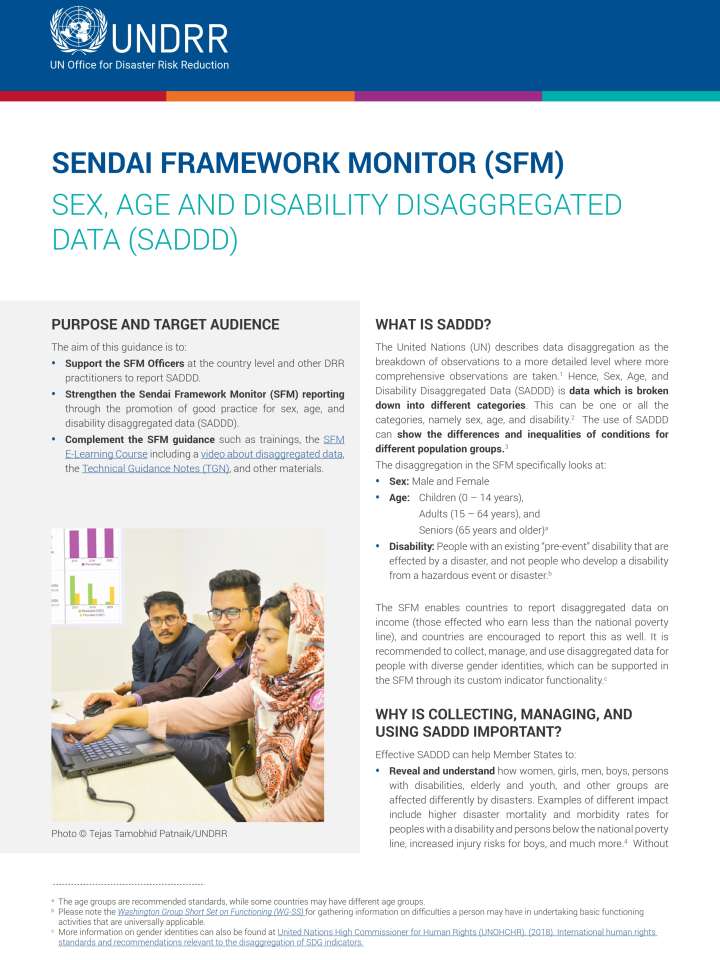Sendai Framework Monitor (SFM) Sex, Age and Disability Disaggregated Data (SADDD)
The aim of this guidance is to support the Sendai Framework Monitor (SFM) Officers, strengthen the Sendai Framework Monitor (SFM) reporting through the promotion of good practice for sex, age, and disability disaggregated data, and complement the SFM guidance.
The United Nations (UN) describes data disaggregation as the breakdown of observations to a more detailed level where more comprehensive observations are taken. Hence, Sex, Age, and Disability Disaggregated Data (SADDD) is data which is broken down into different categories. This can be one or all the categories, namely sex, age, and disability. The use of SADDD can show the differences and inequalities of conditions for different population groups.
The disaggregation in the SFM specifically looks at:
- Sex: Male and Female
- Age:
- Children (0 – 14 years);
- Adults (15 – 64 years); and
- Seniors (65 years and older)
- Disability: People with an existing “pre-event” disability that are effected by a disaster, and not people who develop a disability from a hazardous event or disaster.
The SFM enables countries to report disaggregated data on income (those affected who earn less than the national poverty line), and countries are encouraged to report this as well. It is recommended to collect, manage, and use disaggregated data for people with diverse gender identities, which can be supported in the SFM through its custom indicator functionality.
